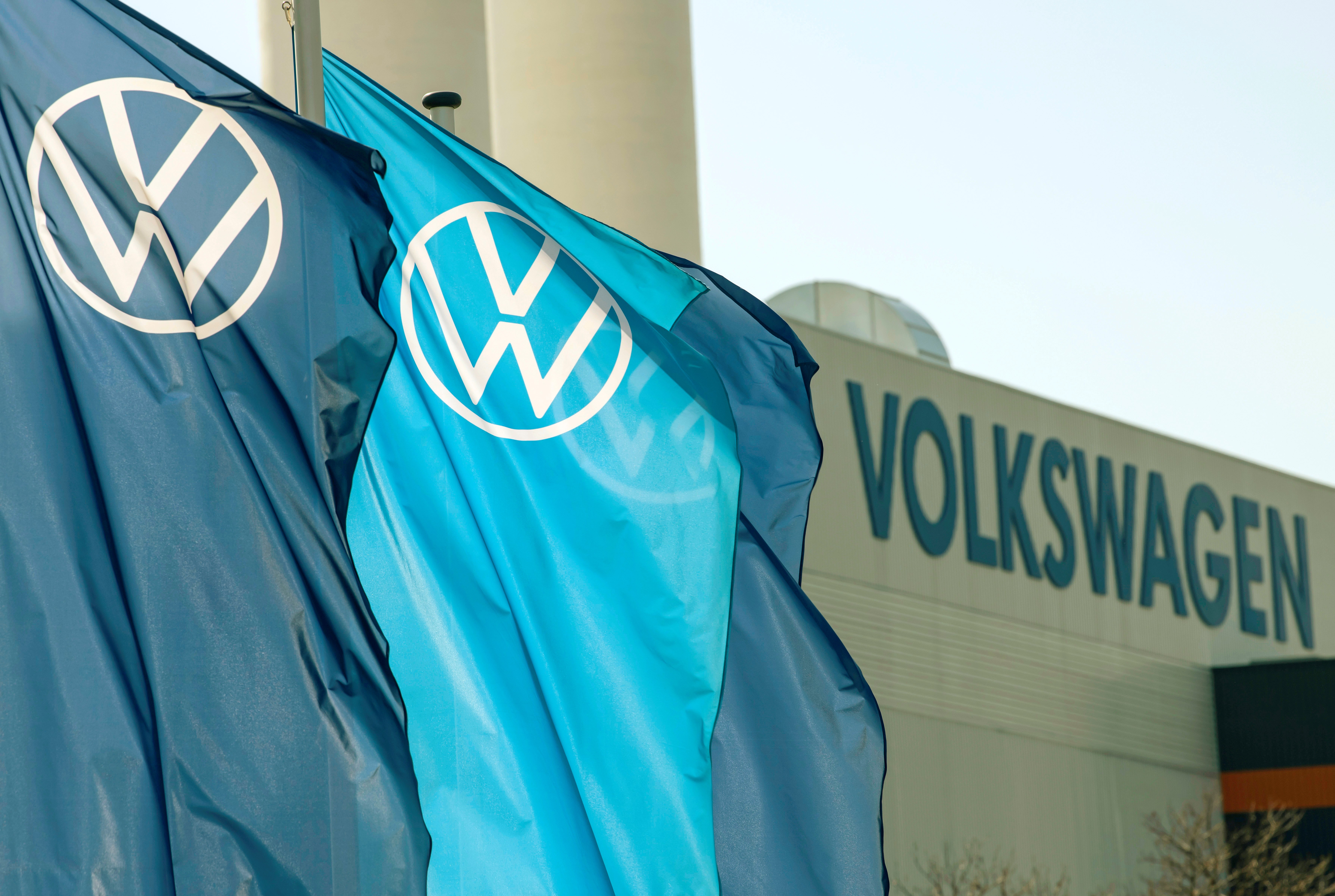VW Group to pause Eastern European battery plant plan in favor of US
In hopes of gaining between €9 billion and €10 billion in loans and subsidies, the Volkswagen Group debates building their battery plant in the US.
-

The Volkswagen factory building in Zwickau, Germany (AP)
Since US President Joe Biden uncovered that clean energy incentives will exceed $360 billion, German automotive company, Volkswagen (VW), announced that it has paused its plan for building a battery plant in Eastern Europe and shifted its priorities to North America.
According to the Financial Times, if VW takes advantage of Biden's Inflation Reduction Act (IRA), it could gain somewhere between €9 billion and €10 billion in loans and subsidies.
“Plans in North America have moved forward faster than expected and overtaken decision-making in Europe,” FT reported, citing a person with direct knowledge of VW decision-making.
In response to worries that European businesses were being encouraged to make investments in the US rather than the EU, the latter unveiled its Green Industrial Plan on February 1 as a countermeasure to the IRA.
VW stated that it was steadfast in its plans to construct further cell factories in Europe and that no decision had been reached regarding the location of its plants.
Read more: German unions caution of large-scale job losses
Company officials explain
According to the FT, the company said, “But for this, we need the right framework conditions," adding, "That is why we wait and see what the so-called EU Green Deal will bring."
On March 3, Volkswagen Group announced via Twitter that Scout Motors, a US car manufacturer owned by VW, would invest $2bn to open a new battery plant in South Carolina.
⚡ New e-car factory for the U.S. 🇺🇸 #Scout Motors plans to produce electric pick-up trucks & rugged SUVs from 2026 in South Carolina 🏭 🚙 $2B investment, 4,000 new jobs & more choices for our U.S. customers. 🎉 Big part of growth program for North America. @SCGOV @henrymcmaster pic.twitter.com/PnjRhWjPWs
— Volkswagen Group (@VWGroup) March 3, 2023
In parallel, Audi AG CEO Markus Duesmann, the company which also belongs to the larger VW Group, in an interview for Frankfurter Allgemeine said, "We [Audi] don't have a factory in the US yet. With the American government's Inflation Reduction Act, building a US plant for electric cars has of course become highly attractive."
Duesmann also said that "in the future, the Volkswagen Group will probably also build more cars for the US market there than before."
🗨️ In the interview with @faznet, Audi CEO Markus Duesmann talked about expansion of the #charging infrastructure, the significance of #software in the car industry, #AutonomousDriving, our #USA business and high demand for #BEVs. pic.twitter.com/hjT67AiJBo
— Volkswagen Group (@VWGroup) February 24, 2023
According to The Guardian, the CEO of Volkswagen Group Components, Thomas Schmall, argued, via a social media post, that Europe needed to introduce an “IRA matching clause."
The Guardian quoted Schmall as saying, “Today, the battery business is led by Asian companies. And while the United States are catching up thanks to the Inflation Reduction Act, Europe is more and more lagging behind. The conditions of the IRA are so attractive that Europe risks to lose the race for billions of investments that will be decided in the coming months and years.”
European deindustrialization?
The European Union is on the path of threatening domestic battery production and investments as prospected Battery Regulations holding very strict criteria and standers might push manufacturers to relocate factories to the US that is adopting more lenient laws with increased funding.
According to a report published by POLITICO in January 2022, the United States, under the IRA, has been pouring cash into battery production lines and manufacturing technology, which challenges the union's attempts to "encourage battery production at home in Europe, something that's meant to be driven by the Batteries Regulation."
Later that month, the head of the Confederation of German Employers' Associations, Rainer Dulger, told the Welt am Sonntag newspaper that Germany might be against the ropes by 2030, facing a massive understaffing of five million, and it will not be able to make up for the deficit due to the expected decrease in taxes.
"The number of employees would reduce by 5 million people by 2030," Dulger said.
It is also worth mentioning that when the IRA was first announced, French President Emmanuel Macron was furious as he argued that the IRA subsidies were posing a major threat to French competitors.
An AFP journalist reported he heard the French President tell US lawmakers and business people, during a trip o Washington, "This is super aggressive for our business people."
"You will perhaps fix your issue, but you will increase my problem," he said, referring to the IRA.
Read more: Breton: EU must shift to wartime economy

 4 Min Read
4 Min Read








